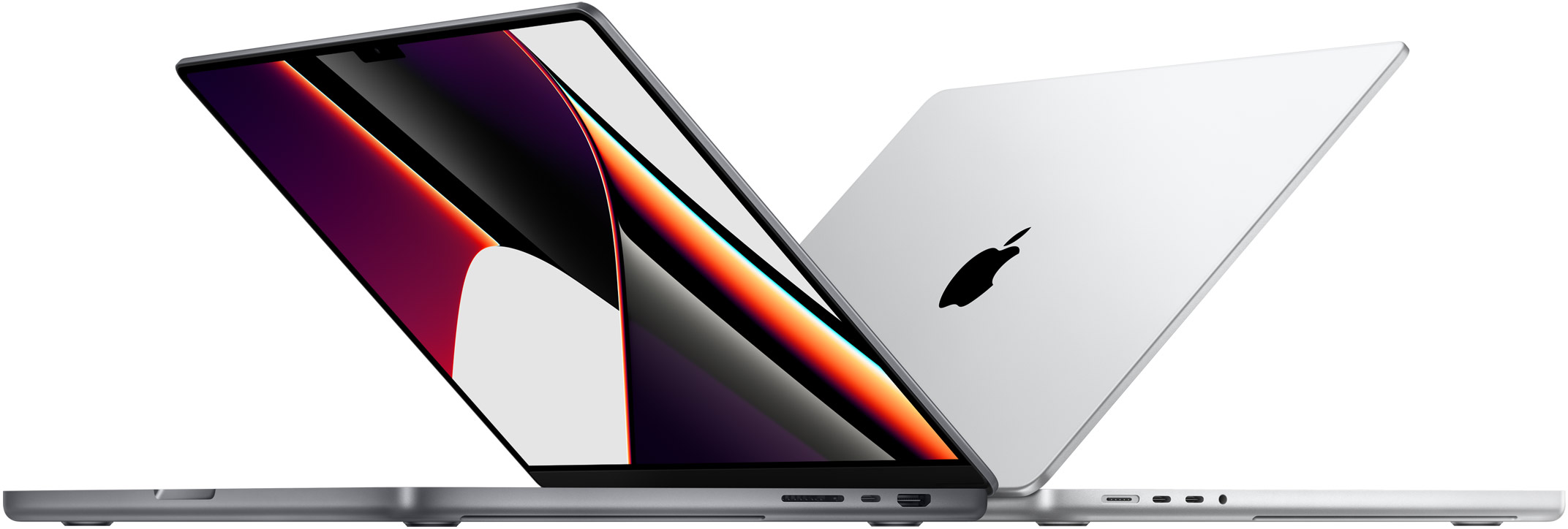Home » News
The Betamax Problem'I hope Apple is listening.'
Mike Simon hopes Apple is listening.
Mike Simon is Macworld's executive editor.
Mike's been using an M1 MBP for the better part of a year. He says it's been mostly great, with good battery life, acceptable 'speeds', etc.
But sometimes that machine of his is a pain. 'It's nearly impossible to get anything done.'
'More than any Mac I've owned, this MacBook regularly experiences freezes, crashes, and restarts that often seem to be related to memory issues.'
Normally that should result in a return, no?
'It's been nearly impossible to pinpoint a pattern', he writes, adding that he thought it was software-related.
Then he noticed that one Gregory McFadden had reported that his 'Control Center' was eating up 26 (twenty-six) gigabloats of RAM... Mike himself notices spikes when using Safari and Adobe Photoshop Elements, but never that bad. He says he's even seen memory issues with Apple Mail.
'Sometimes the issues cause slowdowns that work themselves out in a few minutes, other times my machine locks up and forces a restart.'
Because web and email clients do that all the time, right?

So after Mike saw that, he decided to keep Activity Monitor open all the time (evidently instead of running footprint or top from the command line).
'And it's rare that the memory pressure monitor isn't yellow or red...'
'With the M1 MacBook, I often need to quit apps to free up application memory...'
'Closing Safari tabs is a regular task necessary to free up memory and keep my machine running smoothly.'
Now here comes the punch line - slipped in there without fanfare:
'That's extremely similar to the MacBook Pro and Monterey issues I've read this week - except I'm still running Big Sur.'
So the 'issue' isn't related to the new OS. One might say it's not system-related at all. That it's exclusively hardware-related. Or is it?
'The number of people experiencing this issue appears to be growing...'
Yes, as reported at 9to5 on 2 November.
'However, it's now clear from the growing number of reports that a very wide range of apps are affected, and that it happens on both Intel and Apple Silicon Macs.'
Things got dire over there, with people reporting this message, believe it or not:
'Your system has run out of application memory.'
They add that this usually leads to application crashes.
'In the worst of cases, a user cannot change focus from the alert window, requiring a forced restart.'
Oh how nice. And to add:
'Dismissing the window achieves nothing as it will immediately reappear.'
So nice again. Suspect applications at 9to5 include Mail, Final Cut Pro, and the Apple-resident so-called file manager Finder (which is really really bad).
'The record appears to be one 9to5Mac reader who showed a screengrab of SourceKitService showing 308GB of usage on a 64GB machine.'
Oh great. And 9to5 end with:
'WeÕve reached out to Apple for comment, and will update with any response.'
Back to Mike.
'Sometimes a warning will appear when no single app is even using that much memory and other times apps are seemingly using way more memory than is available. IÕve seen single websites report using as much as 20GB of RAM for no discernible reason, crippling my machine.'
They've all 'reached out' to Apple, but Apple haven't reached back.
(Here come the tips)

'There are a few ways to mitigate the issue', Mike writes. 'The first is to be vigilant.'
Right. Because when we sit down to do a task, it's always nice to have a second task to do.
'As I said, keep Activity Monitor open, and when you see an app's memory usage creeping up, address it.'
Address it how? Find out who's hogging memory and shut them down? Perhaps don't leave too many apps running at once? How much did you pay for that MBP anyway?
'You can also use a third-party memory cleaner that lets you quickly clear RAM.'
Right. Twenty years after we totally debunked this for Windows users, the Mac users are hard at it.
'Running that periodically will help keep your resources available.'
No it won't. They're not magic, Mike. They suck up more and more memory until your other apps start swapping like mad. Do you really think that helps? And as soon as you terminate the cleaner, the system starts giving back memory to the other apps again. Brilliant.
Mike's concluding words:
'And finally, stay up to date with the latest version of Big Sur or Monterey, as a fix will hopefully arrive soon.'
Oh we feel so much better now, thanks.
A Word of Reflection
So is it the hardware or the software? As Apple don't like distinguishing between the two, let's just call it 'the Mac'. The issue is with the Mac.
Suffer with those in anguish. Or GTFO. Take something more sensible.
You'll have to go through withdrawals. Cold Turkey from Apple can be rough. Find suitable hardware. Try not to pay a Microsoft tax. Build a bit for today and tomorrow. Try to get Linux preinstalled at no additional charge. Then take it home and treat it nice. With time switch to a flavour you really like.
All the good distros are based on Debian. Forget the sordid background to it. Debian is the most cautious and careful distro. Top this off with Ubuntu or even Linux Mint.
You'll miss some stuff. It's not the same type of UI. It's more like Windows. But you'll get used to it.
What you gain is considerable.
The code base should be stable and not plague you with memory loss issues and the like. Changes to code are not made in a fanciful way to please marketing departments. You always have the source yourself so you can tweak it any way you like.
These OSes put a lot less strain on your hardware. Nobody's out to fool you or force you to buy new hardware by writing more crappy apps that consume more and more of your hardware resources.
You have no one spying on you, no one phoning home. You don't have to register your product with anyone. You don't have Gatekeeper. You're free again to put your files wherever you please.
You'll also be able to navigate anywhere you want in your file system. None of your directories will be closed off or hidden. You'll see full file permissions and be able to change those permissions.
Your computer will again become a tool for doing a job and not a toy in its own right.
No more drive letters and backslashes. No more forward slashes for colons and vice-versa.
No more replace rather than merge file operations. Apps like the putrid Transmit can no longer obliterate entire system hierarchies simply because the file system tells them to.
No more being told 'you can't remove this file but would you like to remove it anyway'.
When you learn something for one Unix platform, it's generally the same as on any other Unix platform - unlike Apple (or Microsoft).
Go cheap. It's throw-away electronics. Budget $300 for your purchase. If you don't like what you've used, throw it away and get another.
Put a Unix on the machine. Go either with Joy or Linus. Bill Joy started the BSD family. FreeBSD is what Apple's OS is based on. Linus Torvalds of Turku Finland started the Linux family. Red Hat Linux was recently bought by IBM for $34 billion.
The machine is yours. It's all open source. You can fetch the actual code that makes the software. You can build it yourself.
You won't be tracked, spied on. You'll be in control. The vendor will not be in control. You can change your OS vendor at any time. You can change your hardware at any time. You have an exit strategy.
Don't forget to stock up on XDs.
Memorable Quotes
That's what I find amazing with Apple users.
They sell you a very expensive machine that doesn't work.
Your reaction?
Buy a more expensive one from the same provider!
- BiteCode
It's really something, isn't it? I've never regretted my decision to switch from macOS to Linux over a decade ago. Having to restart a 64GB machine constantly because it runs out of memory? Meanwhile my 4GB Linux computer shows a 38-day uptime (only because I accidentally unplugged it last month) and my two Linux servers have uptimes of over a year.
- leephillips
I'm sure I've gotten 100-days uptimes on my MacBook. Close the lid at night, it goes to sleep, open it up in the morning, and continue working.
- fouc
I canÕt get more than upper 30Õs before it just starts doing too many odd things to work around.
- grosswait
Yep, same for me. But the restart fixes it every time. That's why I set a timer that reminds me to restart after 20+ days.
- ddoeth
I regret moving from macOS to Linux.
While the tooling and system stability are better, the desktop and app experiences are far worse. It's buggy, half-baked, and crash.
I regularly hop distributions and do clean installs to see if that will fix it but they're all the same - pop!_os might be slightly more stable in that regard.
I've been using Linux since 1992. I've had several year periods in the 90s and early 2000s where Linux was all I used.
I can ditch GNOME, KDE, and XFCE and go back to twm or i3 or fvwm or Window Maker, but I've moved beyond thoses experiences. I want a more functional desktop.
But, I see now why I paid more to put up with Apple.
- runjake
|